Graham Reid | | 5 min read

It was Joni Mitchell who said it first
- and Counting Crows thought it bore repeating: "They paved
paradise and put up a parking lot."
It wasn't exactly paradise which
disappeared under the wrecking ball in Auckland city, but for rock fans
plenty of places that took them pretty close to heaven.
When it comes to knocking down
buildings, Auckland has an impressive track record. You call them
historic, developers call them targets.
But did we really require a few more chintzy apartments, a furniture shop and a hair salon? That's what we got instead of the Gluepot, one of the great rock venues. Yes, a few said the old Gluepot wasn't up to much - but they hadn't seen internationally acclaimed toilets like CBGBs in New York or Oasis playing a basketball court in Manchester.
The Gluepot had history
sweated into its walls, legendary concerts took place there ... and
now you can buy upmarket couches and get a blow dry. Thanks a bunch.
People who should have known better
said the same of the stately His Majesty's just off Queen St (where
Split Enz played their legendary Radio Hauraki Buck-A-Head concert in
May '74, and Elvis Costello opened by striding up the aisle singing
Pump It Up). It went under the jackhammer so we could have another
hotel and retail complex.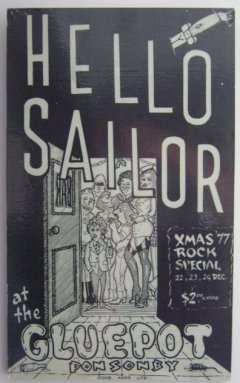
It's a little sad to try to find where rock'n'roll noise
came from in this town. We looked, but they paved paradise . . . and put up
parking lots.
Oddly enough in this city of cranes and construction, the place which housed one of the earliest rock'n'roll clubs - certainly the most influential - is still there.
It is Trades
Hall on Hobson St, which was the location of the Jive Centre in the
late 50s. It was here Raetihi-born Johnny Devlin, New Zealand's own
Elvis who incited screaming and riots, played to packed houses and
recorded his first single, a cover of Elvis' Lawdy Lawdy Miss Clawdy
in 1958.
The Jive Centre and those who played there are featured prominently in the first episode of Whirl. The dapper Merv Thomas must have a hideously ravaged portrait in his attic - and the building doesn't look much changed after 50 years either. Now it houses a property developer's office, and where once kids jived to rock'n'roll it is a silent workplace for people bowed over computers.
The noise will come back next year. It is going to be
a food hall. At least it'll still be there.
Other famous 60s rock venues haven't
been so lucky. Long gone are the Beatle Inn in Little Queen St
(opened by the late entrepreneur Phil Warren and where the late Dylan
Taite played as drummer Jet Rink in the Merseymen). Round the corner
was the Shiralee (later the Galaxie) where the Underdogs and La De
Das played. That whole area is now the Downtown Centre.
The Embers in Chancery St - more a
folksy club for secret dope smokers - is a parking building, the
Peter Pan which became Mainstreet in the punk and new wave era is
gone to developers; wave goodbye to Mojos, Monaco, Surf City and the
Crypt.
Not all the Sixties venues are gone. Yes,
they paved the Platterack to put up a parking lot - and did the same
to the old Radio New Zealand studios across the road in Durham Lane.
But the historic old stone building that housed the Top 20 (later the
1480 Village, Bo Peep and Granny's) is still there.
But the place which Max Merritt opened in January '63 and where Larry's Rebels, the Pleazers and the La De Das started their careers is now gutted and is a workers' lunchroom, and dwarfed by surrounding hotels and parking buildings. In the back of the same building was Zwines, one of the great punk clubs of the late 70s where the Scavengers held a long residency.
It's still
there, broken and deserted; the guy in overalls and hard hat reckoned
it's only because no one knows what to do with the place.
Developers unfortunately knew what to
do with Kurtz and Frisbee's Leisure Lounge on Symonds St - they were
bowled and replaced by low-rise retail and apartments just like most
of the main arteries around the city. No surprises there then.
The Rhumba Bar in Victoria St made way for a bank. The Wynyard Tavern on Symonds St where the pre-Split Enz, called Split Ends, played their first gig in December '72 is gone. Don't go looking for Charley Gray's Island of Real in Airedale St where Hello Sailor, Th' Dudes, Citizen Band and Suburban Reptiles played.
The beautiful Globe up the road has gone too. It's apartments
now. Oh good.
Of course the history of rock and pop
in this city was written all over town: bands such as Lika Street
Choir and the Hi-Revving Tongues played dances at church halls around
the suburbs (just as Citizen Band would do a decade later, and D4 two
decades on from them), the Blue Stars ran the Gallows on Remuera Rd
next to the firestation, and the Surfside in Milford rocked with a
safer kind of pop.
In the 80s and 90s a lot of places just
came and went, like Punch and Judys in Fort St, the Albion, Cactus
Jacks, the Dog Club, the Foundry on Nelson St, Bob Bar in DeBrett's
and Pod in Imperial Arcade. The short-lived club on Queen St called
The Club is now a gentleman's establishment, although a suspiciously
large number of attractive women seem to go there.
Some places were only live venues on
occasion (Phil Warren's Crystal Palace in Mt Eden where the Chicks
opened for Australian singing sensation Normie Rowe in the mid-60s,
the Esplanade in Devonport, Royal George in Newmarket) and some are
deeply imprinted in the memory, from the Monmartre in the 60s to the
Windsor Castle in the early 80s.
There was Russ Le Roc's venue called
The Venue. Ever the imaginative one, eh Mr Crowe?
The Java Jive in Ponsonby just keeps
going, although these days nothing like in its heyday. Then there was
the The Galaxy, then Powerstation, on Mt Eden Rd, home to more
concerts than anyone could recall: Everyone played there, from Shihad
to the farewell of the brief two-Finn Crowded House and the Five
Bands for Five Dollars nights which gave lots of big-hair 90s rockers
a chance to strut their Lycra. It's now called Oracle and hardly has
a band there these days. A shame.
Some venues lasted a while and became
legendary (the Edinburgh Castle in Upper Symonds St, Squid and the
Box/Cause Celebre on High St) but it is sad to report most of the
places where the rock'n'roll noise was first made have been buried,
their importance only in the memory of those who were there. But
those people too are being buried.
Still, while we might have lost a
number of great rock clubs and bars - and we are down to a meagre few
these days - one institution has weathered all the vagaries of
fashion and redevelopment: the Supertop, built as a temporary
structure opened as a rock venue by Midnight Oil in February '88.
What does it say about our city when
concrete and steel, historic pubs and swanky nightclubs disappear but
a windy tent on a concrete pad survives for 15 years?
As that old song said, "Don't it always seem to go, you don't know what you got till it's gone ... "
Elsewhere recommends Auckland rock photographer Jonathan Ganley's recently posted photo-history of these old venues. inspired by this article he generously says: See here. And weep.


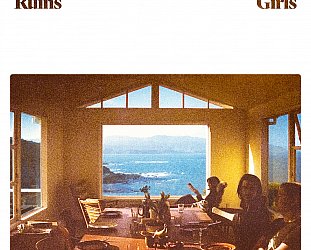
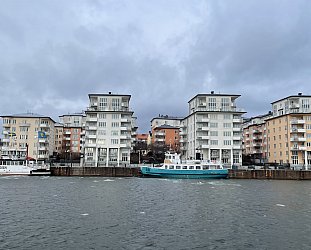
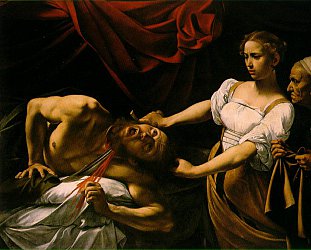
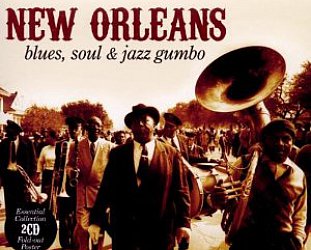

post a comment